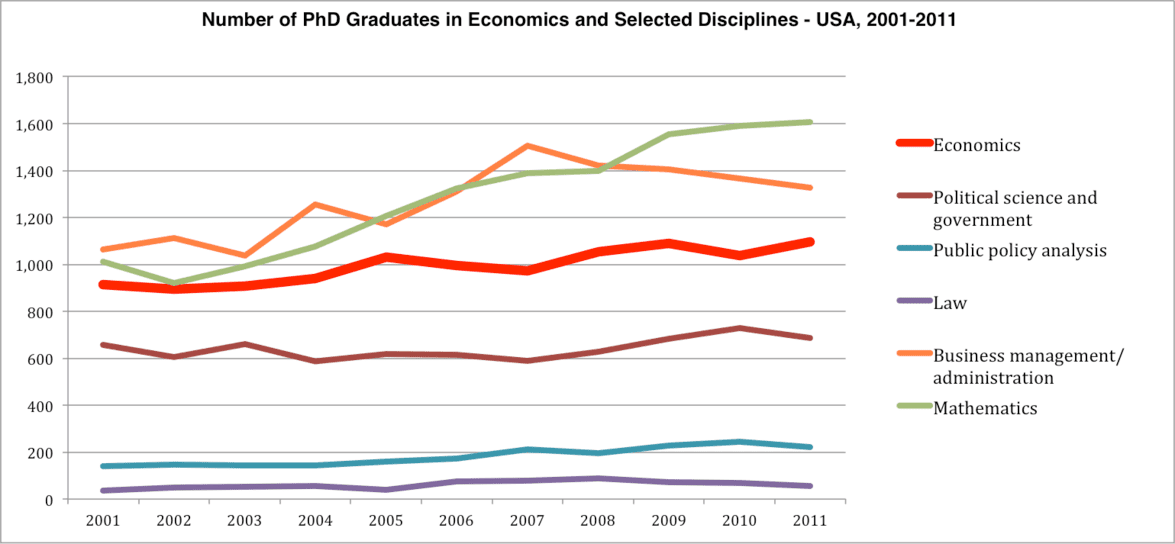
PhD Graduates: Disciplines and Numbers
Read a summary or generate practice questions using the INOMICS AI tool
Source: National Science Foundation, NSF/NIH/USED/USDA/NEH/NASA, Survey of Earned Doctorates
After our recent blog-post comparing the number of PhD graduates in the US and China we decided to have a closer look at the number of graduates in specific disciplines in the US, focusing on the change in the numbers of PhD graduates between 2001 and 2011 and see where Economics stands in comparison.
Despite the general overall growth in the number of Doctorate degrees granted in the last ten years in the US, this growth was not spread equally across all disciplines. The largest number of PhDs in 2011 were awarded in Life Sciences (11,467), Physical Sciences (8,678) and Engineering (8,004). The biggest growth, both in relative and absolute terms also occurred within the same fields (about 30% in 10 years). Within the Physical Sciences the number of PhDs granted in computer science doubled (from 830 in 2001 to 1,710 in 2011), with significant growth also in Mathematics and Physics.
In other disciplines the number of PhDs is traditionally lower. In 2011 5,014 Doctorates were granted in Humanities, 4,691 in Education and 4,526 in Social Sciences. The number of PhDs in Education fell from 6,356 in 2001 to 4,691 in 2011, and the number of PhDs in Humanities stayed almost at the same level, with a slight decrease. In contrast, the number of PhDs granted in Social Sciences grew: from 3,624 in 2001 to 4,526 in 2011.
Within the field of Social Sciences, the majority of Doctorates were granted in Economics (with a slight growth since 2001), followed by the Political Science & Government (with a slight decline since 2010) and Sociology.
You can see the full list of PhD Graduates by subfields here.
-
- MBA Program
- (Online)
- Posted 3 years ago
Master of Business Administration (International)
Starts 1 Jul at University of Tasmania in Hobart, Australia -
- PhD Candidate Job
- Posted 2 weeks ago
5 PhD positions at the Vienna Graduate School of Economics (VGSE)
At Vienna Graduate School of Economics - VGSE in Vienna, Austria
-
- Conference
- Posted 2 weeks ago
CEBRA-BoL-NBP Fifth Biennial Conference “Macroeconomic adjustments after large global shocks”
Between 19 Sep and 20 Sep in Vilnius, Lithuania












